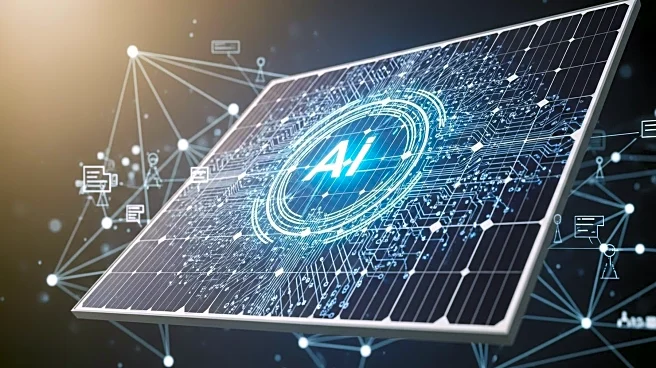What's Happening?
At the REConnect Pune 2025 event, industry experts gathered to discuss the future of solar manufacturing in Maharashtra, India. The panel focused on accelerating domestic solar manufacturing, leveraging artificial intelligence (AI), addressing supply chain gaps, and training engineering, procurement, and construction (EPC) companies to ensure quality installations. The discussions highlighted the need for innovation in solar technology and the importance of overcoming logistical challenges to enhance the efficiency and effectiveness of solar projects.
Why It's Important?
The insights shared at REConnect Pune are significant for the global solar industry, including the U.S., as they underscore the importance of technological advancements and supply chain optimization in solar manufacturing. AI's role in improving manufacturing processes and quality control can lead to more efficient production and installation practices, potentially reducing costs and increasing the adoption of solar energy. Addressing supply chain gaps is crucial for maintaining the momentum of solar projects, ensuring timely delivery and installation, and ultimately supporting the transition to renewable energy sources.
What's Next?
The focus on AI and supply chain improvements suggests a potential shift towards more technologically advanced and streamlined solar manufacturing processes. Industry stakeholders may explore partnerships and collaborations to implement these innovations, aiming to enhance the competitiveness and sustainability of solar energy solutions. Training programs for EPCs could be developed to ensure that installations meet high standards of quality and efficiency.
Beyond the Headlines
The discussions at REConnect Pune reflect broader trends in the renewable energy sector, where innovation and efficiency are key drivers of growth. The emphasis on AI and supply chain management highlights the industry's commitment to overcoming challenges and advancing solar technology. These efforts could lead to long-term benefits, including increased energy independence and reduced environmental impact.










